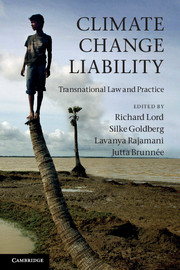Book contents
- Frontmatter
- Contents
- Contributors and Editorial Board members
- Foreword
- Acknowledgements
- Abbreviations
- Part I Legal, scientific and policy aspects
- Part II National laws
- Asia and Pacific
- Africa and the Middle East
- Europe and Eurasia
- 14 European Union Law
- 15 Germany
- 16 Poland
- 17 England
- 18 Russia
- North America
- Central and South America
- Selected resources
- Index
- References
18 - Russia
from Europe and Eurasia
Published online by Cambridge University Press: 05 June 2012
- Frontmatter
- Contents
- Contributors and Editorial Board members
- Foreword
- Acknowledgements
- Abbreviations
- Part I Legal, scientific and policy aspects
- Part II National laws
- Asia and Pacific
- Africa and the Middle East
- Europe and Eurasia
- 14 European Union Law
- 15 Germany
- 16 Poland
- 17 England
- 18 Russia
- North America
- Central and South America
- Selected resources
- Index
- References
Summary
The Russian legal system
18.1The legal system of the Russian Federation (‘Russia’ or ‘RF’) is based on civil law principles. Its heritage lies in Soviet law (1917–91), Russian Imperial legislation (1649–1917) and dozens of other legal systems operating simultaneously (including the customary law of various tribes and peoples, Islamic law, Baltic law, canon law and Judaic law), and its development has been influenced by foreign laws (such as Byzantine, Roman, Tartar, Polish, Swedish, German, French, Italian, Dutch and Lithuanian law). The Civil Code 1994 (the ‘Civil Code’), which is broadly similar to the German Civil Code, is a central piece of legislation. There is also a substantial amount of special legislation. Whilst there is no system of binding precedent, the higher courts have the power to issue general guidelines, and, in practice, the decisions of the higher courts are frequently followed.
18.2The supreme source of Russian law is the 1993 Constitution of the Russian Federation (the ‘Constitution’). The courts are guided by the Constitution and, in the event of inconsistency, constitutional provisions prevail over federal, regional and local laws.
- Type
- Chapter
- Information
- Climate Change LiabilityTransnational Law and Practice, pp. 489 - 522Publisher: Cambridge University PressPrint publication year: 2011



